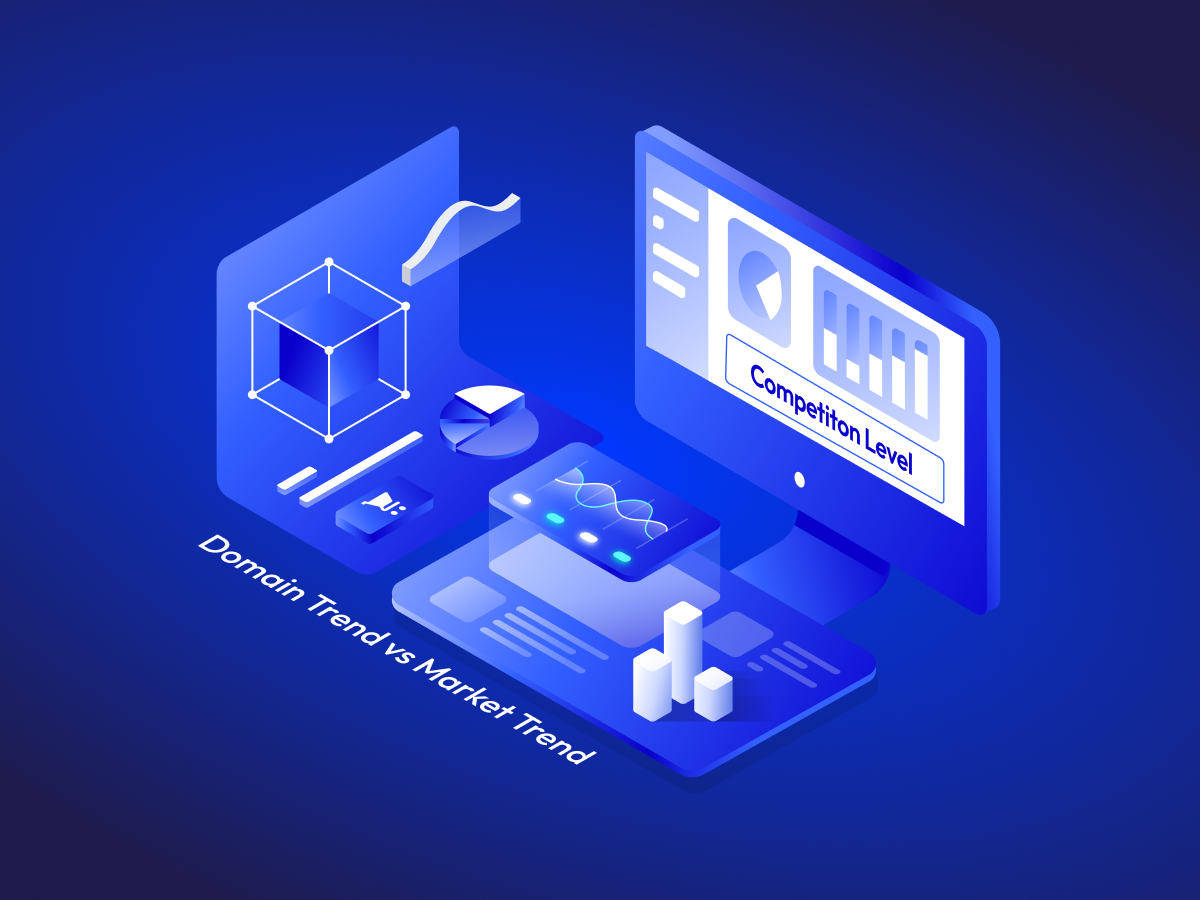The digital marketing strategy development process is a critical step in creating a successful campaign. By carefully considering all aspects of your business, you can build a solid foundation for success.
Key Factors to drive return on Investment on your Next Marketing Strategy this 2023
Follow our comprehensive guide on driving Growth Strategy for your organisation; best used for teams for
- SaaS
- Fintech
- E-commerce
- and other digital-first companies
Customer Research
Customer research is an essential part of any marketing strategy. It can help you understand your customers, competitors and business goals better so that you can develop a more effective marketing plan.
Begin with customer research. The first step to developing a successful digital marketing strategy is to understand your customers. You need to know what makes them tick. Find out what they want and need, what their pain points are, and how you can help them.
You can generally break customer market research into four categories:
- Primary research can be conducted directly with your target customers.
- Secondary research is compiled and organized by a third party, typically data aggregators or large customer market research companies who focus on specific industries and types of data.
- Quantitative research provides statistical information on your customers.
- Qualitative research examines people’s feelings and attitudes towards your product or service, and what motivates them.
Competitor Research
Competitor analysis is one of the most important aspects of your digital marketing strategy. It can help you understand what other brands are doing well and how you can improve upon it, as well as identify gaps in the market that need to be filled.
Competitors should be researched from two perspectives: direct competitors and indirect competitors. Direct competitors are companies whose products or services are similar to yours, while indirect competitors offer something different but complementary (like a bakery next door selling coffee).
There are many ways to conduct competitor research--you could use tools like Google Keyword Planner or SEMrush, which have free versions available; hire an analyst, or even do it yourself by going through old business plans and financial statements online.
Gaining a Competitive Edge through Market and Competitors Analysis is essential to developing a good digital marketing strategy. In most startups, the Job to be done framework is frequently used to help teams indentify their ideal personas or customer profiles quickly.

Target Market Analysis
After you have created your initial marketing plan, it's time to determine who your target audience is. The first step in this process is analyzing the current market and identifying your target audience. This can be done by looking at several factors such as:
- Demographics (age, gender, ethnicity)
- Psychographics (lifestyle orientation and values)
- Geographic location/location data

Once you've defined your ideal customer profile (ICP), it's time to define what they need or want from your product or service. You should strive for a deep understanding of what drives their decisions so that when developing a digital marketing strategy for them, it will resonate with them on an emotional level.
Content Development and Distribution Strategy
Content strategy is the process of developing and implementing a plan that helps you create content that meets your business goals. The goal of your content marketing strategy is to build trust with customers, increase awareness of your brand, and drive engagement and sales through content creation, distribution and promotion.
Content development includes creating original pieces of content like blog posts or videos; curating existing resources (like videos on YouTube); or repurposing existing material into new formats (e.g., turning articles into infographics). Content creation can be done internally by employees or outsourced to freelancers/consultants who specialize in writing/editing/video production etcetera."
Businesses Should Think About Many Different Aspects of Their Business When Developing a Digital Marketing Strategy
When developing your digital marketing strategy, it's important to think about many different aspects of your business.

- What are the business goals?
- Who is the target audience?
- Which digital marketing channels will you use? (Social media, search engine optimization (SEO), etc.)
- What kind of content do you need to create for each channel and how will you distribute it once it's ready for consumption by customers or prospects--and how often should that happen in order for them to see it as part of their regular routine when interacting with brands like yours on social media platforms like Twitter and Facebook?
You also need to consider how success will be measured when determining whether or not these actions have been successful at driving new leads through conversion rates.
When developing a digital marketing strategy, businesses should think about many different aspects of their business. Consider how you can use your resources to reach customers and improve their experience with the brand.
Ultimately, the question of how to develop your digital marketing strategy is one best answered by your business. Take an honest look at your business and marketing strategies. Once you've done that, researching the 4 points listed above should help you develop a digital marketing strategy that your business will benefit from.
Using Grants to Help You Subsidise Your Next Digital Marketing Project
If you're new to the concept of growth we'd strongly advice to work closely with subject matter experts, and explore Growth services to help you through this journey
Here are some of the top grants that could help get your Project subsidised by up to 70 or 80% ( for certain industries ). To help you understand better, our VP of Advanced Services - Dom has taken the time to explain. Watch the overview video below
Here Are Our Top Grant Picks:
For marketers in SaaS, E-commerce, Fintech looking to pursue growth this year
- Strategic Branding and Marketing Development: Help you prepare the right Marketing Strategy for your team to increase Acquisition and Retention efforts
- Automation: For you to integrate best in class systems like CMS, CRMs, other Digital Marketing Analytics tools and more
- Product Development
If you're keen to explore the grants further, book a call with our lovely growth team today

Up to 50% Subsidisies on your next implementation strategy with us
For Companies registered and operating in Singapore, with up at least 30% local shareholding - leverage on the Enterprise Development (EDG) grants for your next; Strategy, Implementation or Enablement project with us at Devhaus!
Supporting Asia’s teams - from all shapes and size












Frequently Asked Questions
Here are some pointers, and a little - 'Quick bite-sized information'.
A: The choice depends on your current stage and specific needs:Alpha ($15K) - If you need to validate a new idea, conduct market research, or develop a go-to-market strategy before building anything
Beta ($25K+) - If you're ready to build an MVP, new website, or CMS with user-focused design and basic analytics
Gamma ($50K+) - If you have an existing system that needs growth acceleration, marketing automation, or enhanced analytics
Delta ($200K+) - If you're undertaking comprehensive digital transformation with legacy system modernization
Epsilon ($30K+) - If you have existing systems (preferably built by us) that need performance optimization and technical debt reductionNot sure? Book a free 30-minute consultation with Rohan (rohan@admiralsystems.io) to discuss your specific situation and get a tailored recommendation.
Our pricing is completely transparent with fixed-scope packages:
What's Included:
- Dedicated team of 3-5 specialists per engagement
- All deliverables listed in the engagement model
- Comprehensive enablement documentation
- Project management and regular progress reports
- Up to the maximum man-hours specified (200-1,200 hours depending on engagement)
No Hidden Costs Policy:As long as your project stays within the agreed scope and timeline, there are no additional charges
- All potential add-ons are clearly listed upfront with fixed pricing
- For Singapore companies: EDG grants can cover 50-70% of costs (we handle the entire grant process)
When Additional Costs Apply:
- Scope changes beyond the original engagement (requires new engagement purchase)
- Client-caused delays that exceed allocated man-hours
- Optional add-ons you specifically request
Each engagement has a defined maximum timeline:
- Alpha: 2-8 weeks (200 hours)
- Beta: 8-12 weeks (280-500 hours)
- Gamma: 16-20 weeks (700 hours)
- Delta: 26-52 weeks (1,200 hours)
- Epsilon: 6-10 weeks (300 hours)
- Project Delays: We build buffer time into our estimates to account for normal client feedback cycles
( If delays are caused by our team, we absorb the additional costsIf delays are client-caused and exceed our allocated man-hours, additional charges may apply at our standard hourly ratesWe provide weekly progress reports so you always know where we stand)
- Acceleration Options: Rush delivery available with 50% surcharge for urgent needs
We can often compress timelines by adding additional team members! If you have your own development team, we're more than happy to take it up to hi-fi prototyping so it'll be a ton less work for your Dev team!
We can only guide you through it - having said that, we're experienced grant partners and handle the entire process:
Grant Coverage:
- Singapore SMEs: Up to 50% of project costs covered
- Sustainability projects: Up to 70% coverage (until March 2026)
- Our services align with multiple EDG categories: Business Strategy Development, Financial Management, Human Capital Development, and Strategic Brand & Marketing Development
Our Grant Process:
Partner Network: We work with Real Inbound Consulting (certified TR 43/SS 680) for grant administration
Full Service: Application preparation, document submission, project management, audit support, and claims processing
Administration Fees: $7,800-$15,000 depending on project size (much less than the grant savings)
Success Rate: High approval rate based on our experience with 50+ grant applications
Eligibility Requirements:
- Singapore-registered company30%+ local equity held by citizens/PRs
- Financially stable to complete the project
- Project hasn't commenced before application
Timeline: Grant approval typically takes 4-6 weeks before project commencement.
We offer multiple post-engagement options:
Immediate Post-Completion:
- 30-day warranty period for any bugs or issues
- Complete handover documentation and training
- Knowledge transfer to your internal team
Ongoing Support Plans:
Starting from
Basic ($5K/year): 40 hours, bi-annual check-ins, basic troubleshooting
Advanced ($10K/year): 80 hours, quarterly check-ins, strategy sessions
Premium ($20K/year): 120 hours, monthly check-ins, dedicated account manager
Growth & Evolution:New Requirements: Purchase additional engagement models for new projects
System Expansion: Beta → Gamma → Delta progression path available
Continuous Optimization: Epsilon engagements for ongoing performance improvements
Key Principle: Support covers maintenance and optimization of existing systems, but new features or integrations require new engagement models to ensure proper scoping and quality.
Key differentiators set us apart:
1. Asian Market Expertise:
- First Webflow Enterprise partner in Asia
- Deep understanding of Singapore, Hong Kong, and Indonesian markets
- Multi-language, multi-currency, cross-border commerce experience
2. Comprehensive MarTech Integration:
- Partners with 15+ best-in-class platforms (Segment, Customer.io, Fullstory, etc.)
- End-to-end data pipeline orchestration (not just point solutions)
- Unified dashboard approach preventing "tool sprawl"
3. Award-Winning Creative + Technical Team:
- 2024 Fullstory Service Partner Award winner (APAC)
- Design team that creates "jaw-dropping creatives" alongside technical implementation for your analytics
- Creative-technical convergence in every project


